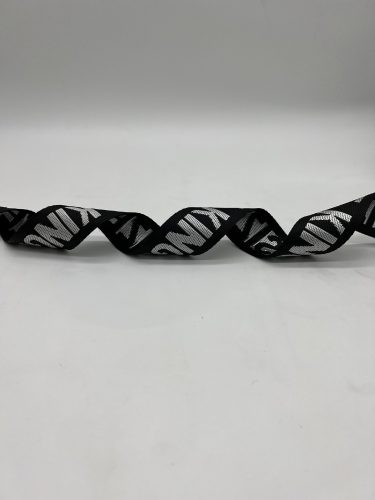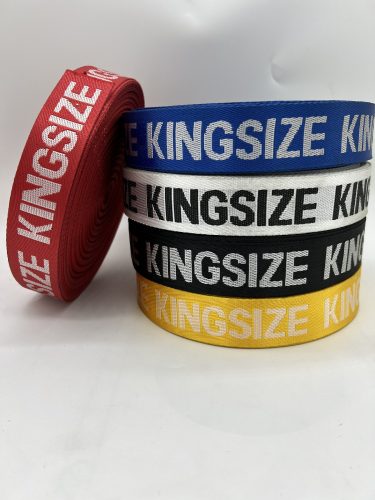Nylon webbing and polyester webbing are both widely used materials with their own distinct properties and advantages. Here’s a comparison between nylon and polyester webbing to help you understand their differences:
Nylon Webbing:
Advantages:
- Strength and Durability: Nylon webbing is known for its exceptional strength and durability. It has a high tensile strength, making it suitable for heavy-duty applications and load-bearing purposes.
- Abrasion Resistance: Nylon webbing has good abrasion resistance, making it suitable for applications that involve friction and wear.
- Elasticity: Nylon webbing has a certain degree of elasticity, which can be advantageous in applications that require some give or shock absorption.
- Moisture Resistance: Nylon is naturally moisture-resistant, making it suitable for outdoor and wet environments.
- UV Resistance: While nylon does have some resistance to UV radiation, prolonged exposure to sunlight can cause it to degrade over time.
- Quick Drying: Nylon tends to dry relatively quickly after being exposed to water.
- Cost: Nylon is generally more affordable than some other high-performance materials.
Disadvantages:
- Less UV Resistance: Compared to polyester, nylon has lower UV resistance, which can lead to color fading and degradation over time when exposed to sunlight.
- Absorption of Water: Nylon has a higher tendency to absorb water compared to polyester, which might affect its properties in wet conditions.
Polyester Webbing:
Advantages:
- UV Resistance: Polyester webbing has excellent UV resistance, making it suitable for applications that involve prolonged sun exposure.
- Colorfastness: Polyester retains its color well and is less likely to fade over time, even when exposed to sunlight.
- Water Resistance: Polyester has lower water absorption compared to nylon, which can prevent weakening and deterioration in wet conditions.
- Strength and Durability: While not as strong as nylon, polyester webbing still offers good strength and durability for many applications.
- Mildew Resistance: Polyester is resistant to mildew growth, making it suitable for damp environments.
- Non-Elastic: Polyester webbing is generally less elastic than nylon, which can be advantageous in applications where minimal stretch is desired.
Disadvantages:
- Less Elasticity: The lack of elasticity in polyester can make it less suitable for applications where some flexibility or shock absorption is needed.
- Higher Cost: Polyester webbing can be more expensive than nylon, although the price difference might vary based on the specific product and supplier.
Choosing Between Nylon and Polyester: When deciding between nylon and polyester webbing, consider the specific requirements of your application. If strength, elasticity, and affordability are key factors, nylon might be the better choice. On the other hand, if UV resistance, color retention, and water resistance are more important, polyester could be the preferred option.
Ultimately, the choice depends on the intended use, environmental conditions, and your specific priorities for the project. It’s recommended to assess both materials’ properties and consult with experts if needed to make an informed decision.


